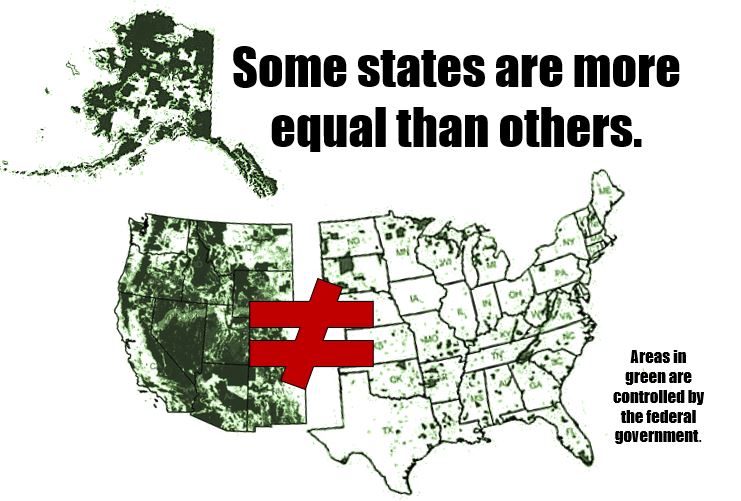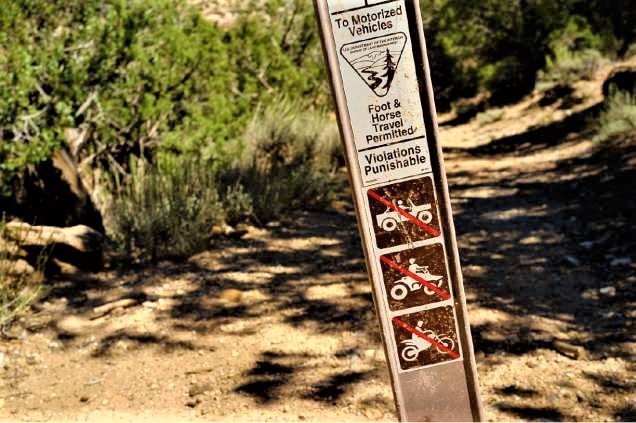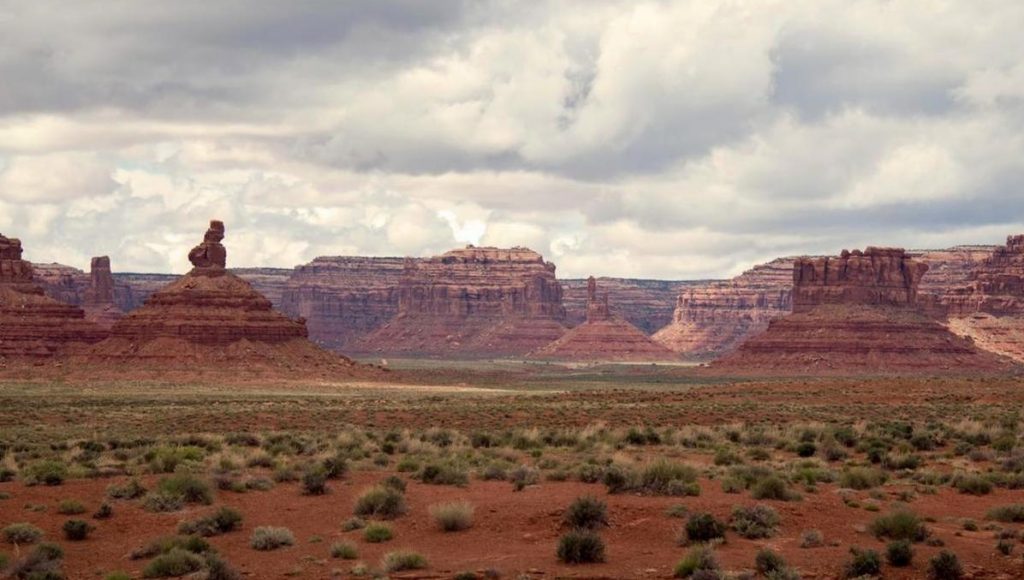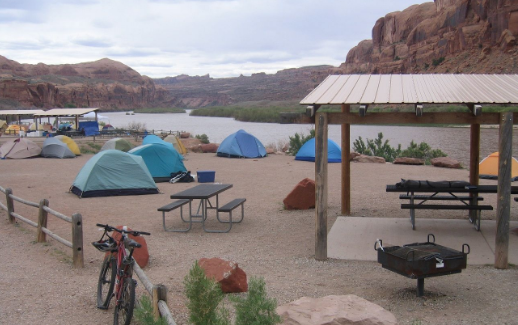An argument could be made that federal ownership of major swaths of 12 Western states effectively deprives them of the same sovereignty as the remaining 38 states, he said. “Why are we inferior because we chose to live in the West?”
Mateusz Perkowski
Western federal lands policy open to challenge, attorney says
Federal ownership of vast acreage across the West is vulnerable to a constitutional challenge by affected state governments, according to a public lands attorney.
While court rulings until now have supported the federal government’s control over Western public lands, attorney George Wentz said those cases predate the Federal Land Policy and Management Act of 1976, which made federal ownership permanent.
An argument could be made that federal ownership of major swaths of 12 Western states effectively deprives them of the same sovereignty as the remaining 38 states, he said.
“Why are we inferior because we chose to live in the West?” Wentz asked growers at the American Farm Bureau Federation’s annual convention in New Orleans on Jan. 13.
For reasons of legal standing, it’s likely that FLPMA would have to be challenged by a state government impacted by the law, but none have stepped up to the challenge so far, said Wentz, who has represented Utah in a dispute over federal land management.
In the case of Oregon, Idaho, Utah, Nevada and Alaska, the federal government owns more than half the land mass.
Realistically, such vast federal ownership of public land limits the ability of Western states to develop economically and attract residents, effectively hindering their political power permanently, Wentz said.
“A less-than-sovereign state can’t protect its citizens in the way a fully sovereign state can,” he said. “How do I compete with Texas, how do I compete with New York, how do I compete with Florida?”
The U.S. electoral system has basically been “gerrymandered” to favor populous states in the East and Midwest over sparsely populated ones in the West, he said.
Citizens in Western states have less political influence compared to states such as Florida, which have proven pivotal in presidential elections, Wentz said.
Federal authorities are also less accountable to citizens of Western states in law enforcement, he said.
Free Range Report
Thank you for reading our latest report, but before you go…
Our loyalty is to the truth and to YOU, our readers!
We respect your reading experience, and have refrained from putting up a paywall and obnoxious advertisements, which means that we get by on small donations from people like you. We’re not asking for much, but any amount that you can give goes a long way to securing a better future for the people who make America great.
[paypal_donation_button]
For as little as $1 you can support Free Range Report, and it takes only a moment.




I’m sure Wentz is a good guy, smart, well intentioned, however he obviously doesn’t understand two very important facts about Western land law. 1: “exclusive legislative authority “ (or jurisdiction), and “ownership” are two completely separate things, and 2: almost all of the so-called Federal or “public lands” west of the 100th meridian exists as split-estate land where the US only owns the mineral estate and commercial timber rights. Between 1909 and 1923 Congress fully adopted a split-estate land disposal policy whereby ranchers who had “occupied and cultivated or improved” mineral lands “the surface of which was chiefly valuable for grazing and raising forage crops” were statutorily granted the surface ownership for StockRaising (see Kinney Coastal Oil v Kieffer, 1928, and Watt v Western Nuclear, 1983). The United States retained the “mineral rights” and “commercial timber rights” in order to dispose of those interests separately. See Ag Entry of Mineral Land Act 1914, StockRaising Homestead Act 1916, Mineral Leasing Act 1920, SRHA Amendments 1923, 1929, 1949, 1993, and Kinney Coastal Oil supra, Watt supra, United States v Texas 1950, Wilson v Cook 1946. The surface estate for all “agricultural and ranching purposes” of all Grazing Allotments was disposed of as of 1916 for all Allotments within national forests, parks and grazing districts upon the return of an official government survey map ( ie Allotment Map). Bureaucrats are only able to control every aspect of Allotment Owners because they sign “cooperative agreements” (aka “permits” “AMPs” or “other instruments”) that obligate the allotment owners to “terms and conditions” under the “Cooperative Agreement Act of 1924”. General (or purposeful) ignorance of the law is the biggest impediment to Western States exercising “Jurisdiction” over split-estate Western land. I think some people interested in socialistic State-ownership of all resources ( including farmer and ranchers water and forage rights) purposefully ignore the laws in an effort to fool citizens into embracing a communistic State ownership of all resources.